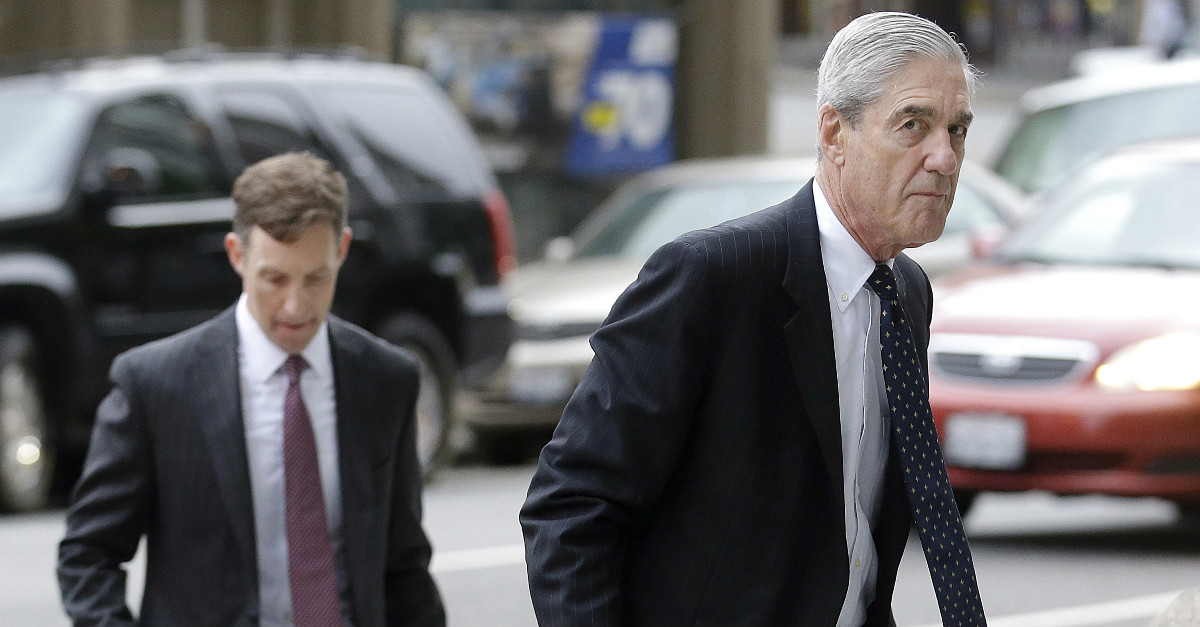On Wednesday, Deputy Attorney General Rod Rosenstein finally did something that he should have done as soon as he was confirmed to his post: hand the Russia investigation to a special counsel with an impeccable reputation for hard work, tenacity, and fairness.
Videos by Rare
- Where will the investigation lead?: Independent counsels, special counsels and special prosecutors (yes, there are differences) have a tendency to elevate DoJ investigations into territory that those being investigated would prefer to be ignored. Just ask President Bill Clinton; what was originally an inquiry (headed by Ken Starr) into land deals in Arkansas ended up as an indictment of his personal life, causing him all kinds of embarrassment on the world stage and eventually producing a recommendation from the independent counsel that there were sufficient grounds for impeachment. Patrick Fitzgerald’s inquiry into the Valeria Plate leak case resulted in the indictment and conviction of a top White House staffer on five counts of lying to a grand jury and providing false statements. Like Starr and Fitzgerald before him, Mueller will be asking White House officials to give depositions. And if Trump officials deliberately obstruct the inquiry or lie in the depositions, they could find themselves in the same boat as Scooter Libby.
- Rosenstein’s revenge: It was no secret that Deputy Attorney General Rosenstein was angry about how the James Comey firing was handled. Rosenstein’s memo outlining Comey’s sins during the Clinton email case was used by White House officials as the main reason for the FBI Director’s dismissal — indeed, until Trump gave that interview to NBC’s Lester Holt, White House spokesmen were hiding behind Rosenstein’s good reputation, something that reportedly caused the Deputy Attorney General’s blood to boil. His decision to appoint Mueller as a special counsel — notifying the White House only after the order was signed — is a not-so subtle message from Rosenstein that he’s serious about defending his integrity and is in nobody’s pocket.
RELATED: Whatever comes of the investigation into the Comey memos, it will be bad for the country
- Don’t forget about Congress: Just because Mueller is now on the case doesn’t mean that Congress will stop investigating. The Senate Intelligence Committee, the Senate Judiciary Committee and the House Intelligence Committee will continue to do their work, call (and perhaps compel) witnesses to testify publicly and request (and if opposed, subpoena) documents, notes, audio files and any other records that they deem relevant to the probe. In 1973, the Nixon White House had to fight multiple investigations into Watergate. In 2017, the Trump White House will be doing the same thing on possible collusion with Russian operatives during last year’s presidential election.



